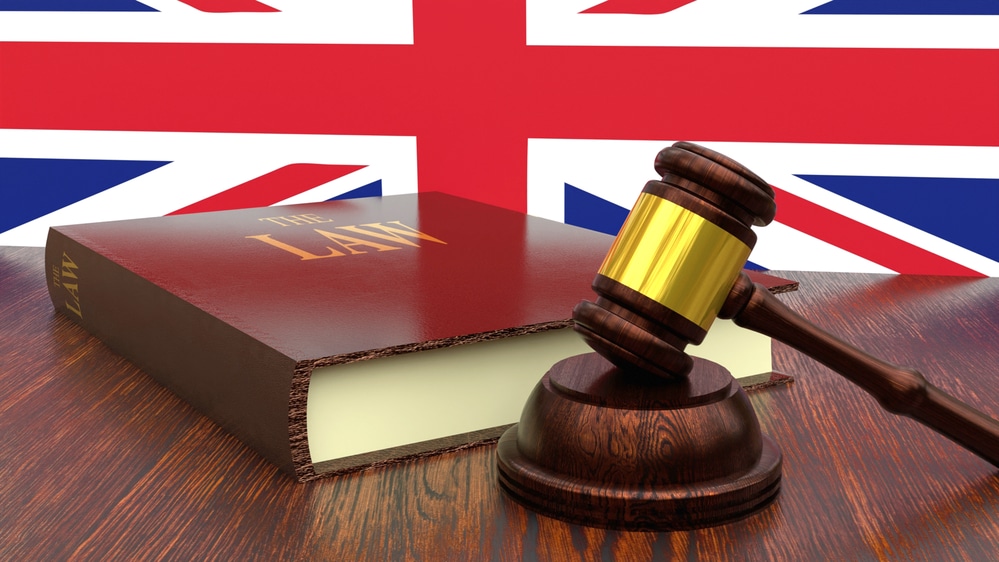Amidst protests in the United Kingdom that have been going on since October 7, there have been multiple allegations of extemists among the protestors intimidating, harassing, and scaring innocent people who are not involved in the demonstrations. It seems that even MPs are being intimidated, with the Speaker allegedly pushing a vote using a parliamentary procedure that has not been employed for years; he’s allegedly been pressured by Labour leader Kier Starmer, who in turn has been allegedly pressured by the extreme wing of his party.
In response to these events, Prime Minister Rishi Sunak made a speech where he promised to crack down on political extremism that he perceives to be growing across the country. One such measure is changing the definition of “extremism.” The British government released its guidelines for a new definition which includes “the promotion or advancement of an ideology based on violence, hatred or intolerance, that aims to: negate or destroy fundamental rights and freedoms of others; or undermine, overturn or replace the UK’s system of liberal parliamentary democracy and democratic rights; or intentionally create a permissive environment for others to achieve results.”
Those “results” are the first two parts of the definition. This may seem sensible, but when you dig a little deeper than face value, a lot more is revealed that should trouble every British citizen.
A necessary part of any law is specificity. Any law that is written needs to be specific, limited, and restricted to exactly the people or organizations you wish to affect. Often legislation written today is hundreds of pages long. Extensive bills with never ending subsections allow for numerous interpretations that lead to legal exploitation. There should be no room for legal maneuvering, with government actors encompassing huge swathes of people with a law that, when its origin is studied, was only meant for very rare or specific circumstances.
For example, the United States Constitution, despite being somewhat specific and with clearly intended purposes for each amendment, has been twisted and contorted to allow for the expansion of government into everyone’s lives. The U.S. Constitution, heavily influenced by those who recognized that ambiguity in law is inherently dangerous to a free society, was still able to be interpreted in a malicious way; so why would it be surprising that guidelines written today could be wrongly interpreted when politicians of the modern age do not recognize this danger? Anyone who has studied U.S. constitutional history will know that the Commerce Clause was not intended to allow for interference in the free trade of goods between the states. However, over the centuries it has been manipulated to grant the federal government power to intrude into every single part of the business dealings of every, if not all, businesses in the United States. It was clearly not meant for that and anyone with the right knowledge of how the Founding Fathers’ thought would know this. Nonetheless, the American government manipulated it.
This is the nature of all governments; they pursue growth and the actors within them use laws for their own purposes. A famous case in the United Kingdom is of Babar Ahmad. After 9/11, new counter terrorism legislation was passed that critics at the time said was far too vague and could easily be used to wrongfully detain people without trial for extended periods of time. Babar Ahmad fell victim to this effect and was detained for eight years in the United Kingdom without trial with the Crown Prosecution Service later admitting they have “insufficient evidence” for prosecution. This was as clear cut an example as you can get where a law that is vague and all-encompassing will be used to harm people it was not intended to harm. This is the result of knee jerk legislation that sought to make it look like government was doing something in the face of great panic and fear. Sometimes, the hardest thing to do is to do very little (relative, of course, to what happened in reality; which was a heck of a lot).
We also need to zero in on a specific part of the definition: “…promotion or advancement of an ideology based on violence, hatred or intolerance.” This is so broad that it massively threatens freedom of speech. It is very easy for every single person on the political spectrum to perceive how this could easily be used against their beliefs. Here are a few examples:
- You are a social conservative, you go to church every week, and you make a conscious attempt to read your religious text. You may vocally oppose homosexuality. You do not act on the belief but you simply believe two men or two women do not belong together. You could easily be labeled as intolerant and hateful under this definition.
- You consider yourself an anti-woke individual so you may vocally oppose policies like sex reassignment surgeries for minors. Do you truly believe someone in government could not label you as hateful and intolerant under this definition?
- You are an anti-racist campaigner who believes that white people should pay reparations for all the damage you believe they caused. You will easily be labeled as hateful or intolerant if specific people are in positions of power to use this definition against you.
- You believe in permitting sex reassignment care for everyone who seeks it, including minors, so you vocally advocate for it. Some people consider this child abuse, so is it hard to foresee how those individuals in power could use this definition against you?
You can be left, right, center; wherever you are on the political spectrum there will be an area where you can be considered hateful and intolerant under this definition. Are you willing to take the risk of the people you oppose getting into power and using it against you and many hundreds of other people who hold the same beliefs as you? It has already happened in the past so what makes you think it will not happen again?
You can deplore real terrorism as wholeheartedly as I do without resorting to heavy handed government measures that end up catching innocent people in the crossfire. Vague definitions of words that can potentially jail people for life cannot be normalized by our government. Otherwise every different political party will find ways to use it for their own purposes. It is already happening around the world and has happened a multitude of times in history. The fact is that you have a basic right, given to you by the virtue of being born, that should allow you to say what you want without fear of repercussion from the state. Once we allow the state to define terms that will inevitably be used to curb your freedom to express your belief, then we are on the slippery slope to having a hollowed out rights altogether. We should challenge the ideas, not the act of vocalizing them.
































